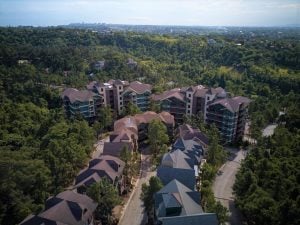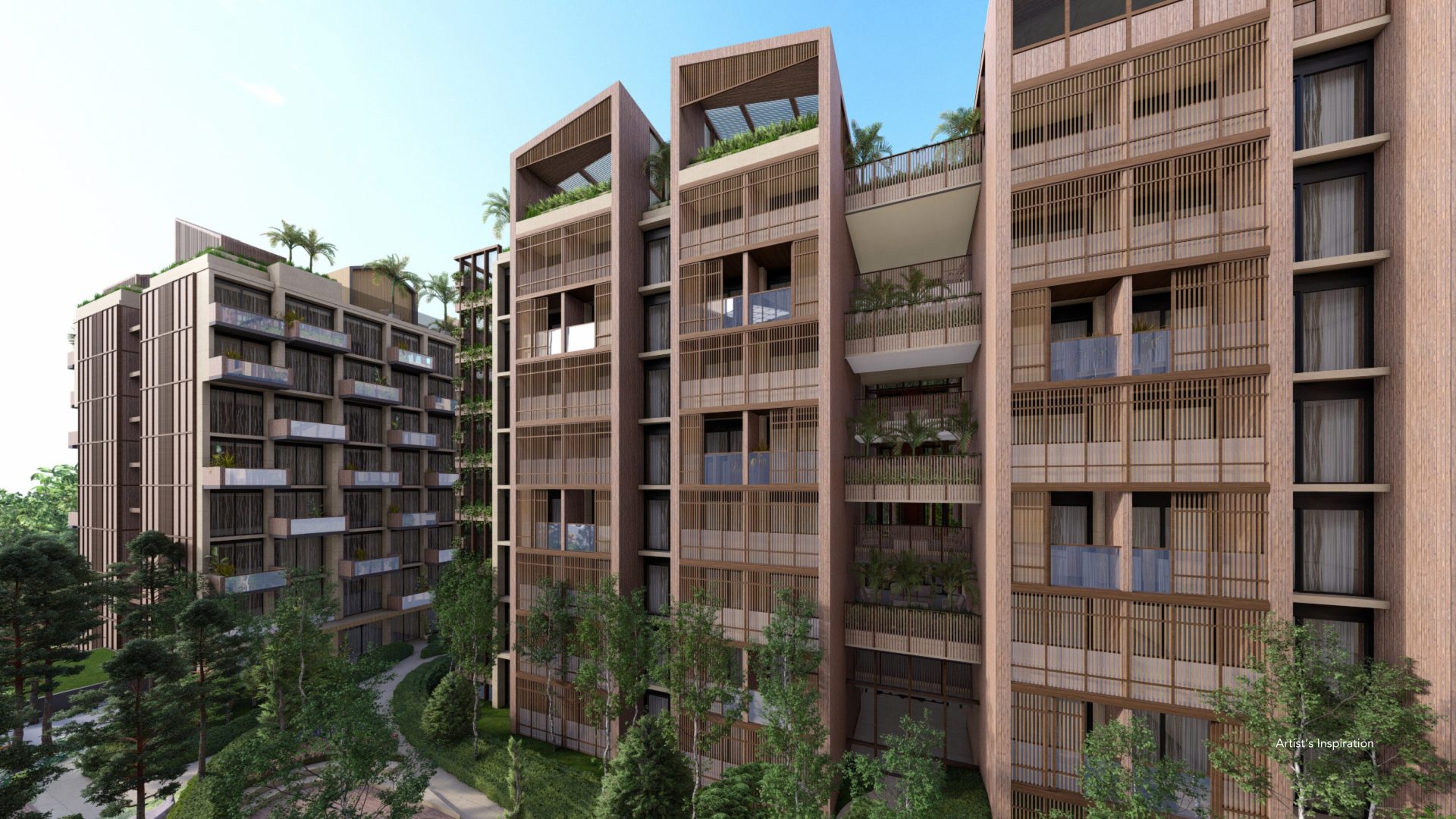BLOGS
Tips on Buying a Lot Only Property
A Lot only property may not be a popular real estate investment but it is a desirable undertaking. When you need to diversify your money into real estate and already have a primary home, investing in lot only properties make sense. Luxury lot properties, for example, are located in prime locations and situated in developed communities that are primed to thrive. If you are the type of buyer who wanted to actually see and touch your properties, owning land is an added bonus. Moreover, because they are great long-term investments, lot only properties are great financial leverage for people who wants to foray into other real estate investments.

While the location is key in choosing your real estate investment, it also pays to check into other factors as well in order for a smooth transaction.
However, buying a property or land in the Philippines can be a complicated and long process. You must know what to do and what to be aware of before completely deciding to buy land. It’s not as simple as buying a luxury bag or a luxury pair of shoes. And when you take the entire property buying process online because of social distancing protocols, it can be also frustrating when you deal with it without a real estate professional to assist you. And because the Internet is vast, it can be really hard to find real gems among the sheer number of raw lots for sale listed online. There are also real estate risks when it comes to searching and eventually buying raw lots for sale, more so when you buy luxury lot only properties.
Practicing due diligence in purchasing a lot here in the Philippines can take a bit of time, but this relatively small delay will save you some headaches in the future. It’s better to go through a lot of hoops in order to avoid potential problems so you would not have any regrets after you seal the deal.
Take note of these tips when buying a lot only property

It all starts with knowing what you are looking for, and knowing what to expect in buying lot only properties.
So how would you know if the lot only property you want to invest in is a great investment? Here are tips you need to keep in mind to guide you before and when in the process of purchasing lot only properties.
1. Look at locations near or in master-planned communities or areas where development plans are underway.
We cannot underscore why master-planned communities are great places to live in. Whether you plan to build a luxury home and live in it, or sell it in the future, master-planned communities provide lots of economic, social, and spiritual opportunities that you can bank on. Urban development in the area helps drive property prices up, including the valuation of your luxury lot.
The lifestyle a master-planned community affords to anyone who lives in it allows any resident to focus on the most important things, like life, family, and love. And the ongoing pandemic has also imparted a very good real estate lesson, and that is investing in a low-density location that is well-supported by urban developments is better than spending money on a property in a populated location, like a city center.

Brittany Corporation by Vista Land is more than just themed communities: they offer luxury lot only properties that help investors start on their real estate dreams.
Brittany Corporation by Vista Land is a high-end property developer in the Philippines that seeks to address the demand for such definitions of beautiful luxurious communities. From lush, premium house and lot residential communities to high-end condominium enclaves, Brittany Corporation aims to offer the most sought-after bespoke lifestyle that allows an extravagant, effortless quality of life, both indoors and outdoors.
Moreover, Brittany Corporation is the first in the country to conceptualize, develop, and manage beautiful residential communities that offer luxury homes, beautiful house and lot units, to luxury lot only properties located in strategic areas of the development.
The design inspiration for Brittany’s luxury communities is the top scenic destinations in the world, bringing breathtaking places closer to home, and allowing residents to achieve the beautiful, luxurious lifestyle that they seek. The locations allow people to spend their days creating wonderful memories that their families deserve.
2. Know the laws and regulations when it comes to owning lot only properties.
There are eleven laws directly related to land registration, and an additional nine indirectly related to land disposition and administration. You don’t need to be an expert about it, but reading and understanding which laws afford you protection as a buyer will ensure that you can spot some red flags before you close the deal. But if you find this difficult or do not simply have the time, getting legal representation and dealing with a trusted seller will give you peace of mind and alleviate buyer anxiety.
Moreover, it pays to know also which government agencies and departments you can run to when you do encounter a legal snag, or simply need more information about the luxury lot only property you are eyeing. Aside from the Department of Environment and Natural Resources and the Bureau of Lands, there are several agencies that have direct and indirect control over land.
3. Verify land ownership status.
There are two ways to buy lot only properties; through an individual seller and with a trusted seller. You need to make sure that the lot only property you are eyeing is not claimed by several parties or has ownership issues that can be a huge liability to you once you close the deal.
When buying from an individual, you need to do two things: check the authenticity of the Transfer of Certificate of Title, and if the title is clean. You can do so by checking the title first with the Registry of Deeds or with Land Registration Authority (LRA). Ask the seller for the photocopy of the title and other pertinent information about the land for due diligence. You can go to the Registry of Deeds to ask for a Certified True Copy of the title. Every municipality has its own Registry of Deeds or LRA. If you don’t want to, you can always go online. Usually, the verification process takes up to three business days or longer.
After checking the title, verify if the title is clean. You want to make sure that the title is not mortgaged: you can see it at the back of the title. You can always ask the staff from the said government agency to read it for you or consult a real estate lawyer. If you are presented with just a Tax Declaration as proof of ownership, you have to consult a lawyer if this will be a feasible investment.
As for lot only properties with a trusted developer, check for the availability of the Mother title. In residential communities that offer pre-selling properties, the houses or condominiums will have to be constructed over a period of time based on the contract. As such, the individual title will not be available.
4. Look into possible issues that can add more responsibilities and liability.
At this stage of the real estate buying process, you should beware of every risk when buying a lot only property. Land acquisition involves a huge amount of money, and you wouldn’t want to get invested so much into the process and then encounter more issues afterward.
● Make sure that the listing title should match the actual lot only property that is being sold. You may need the help of a surveyor to verify technical descriptions to ensure the accuracy of the property listing.
● Ask for a photocopy of the Tax Declaration. Some lot only properties may come with unpaid taxes and other penalties that are not included in the total contract price and can be a huge problem for you on the way to securing the title. The tax declaration should include receipts and other pertinent documents you need to confirm that all taxes are duly paid and there are no penalties.
● Check for right of way issues. This is a critical aspect as it can definitely increase the costs of owning the property. If the lot only property is bounded by a road or street, you may need to pay for the right of way.
● Deal with the rightful owner and/or the authorized real estate broker or agent. If you are not dealing with the rightful owner directly, make sure that the real estate broker or agent has a Special Power of Attorney (SPA). Make sure that the signatures are valid and authorized.
5. Be informed about the additional transaction costs.
The following are the transactional costs you will need to shell extra aside from the contract price when you buy a lot only property from an individual buyer:
● Transfer Tax: 0.5% of the actual sale price
● Capital Gains: 6% of the actual sale price
● Documentary Stamp: 1.5% of the actual sale price
● The registration fee for the new land title: 0.25% of the actual sale price
If you decide to purchase a lot only property from developers or corporations, they may have different percentages. You may ask this during your property search in order to compare transactional costs.
6. Make sure that you have a notarized copy of every legal documentation.
When you go through the real estate buying process, you will encounter a lot of legal documents. Make sure that every legal document, including the Deed of Sale, is notarized and that you have a digital and physical copy of it stashed somewhere. Keep in mind that these documents will identify and validate you as the legal buyer. The legal documents will also be helpful once you decide on using the land you just purchased as financial leverage for other investments.
Also, it is important that your agreements with your real estate agent and broker are in writing. While they are not necessarily recognized as legal documentation, they help supplement your ownership.
7. Settle the BIR Fees.
Once the Deed of Sale is signed, you need to settle fees with BIR or the Bureau of Internal Revenue within 30 days. You also need to furnish some documents, including:
● An original and photocopy of the Deed of Absolute Sale
● An original and photocopy of the Transfer Certificate of Title
● If applicable, a Tax Declaration for Land and Improvement
● Buyer and Seller’s Tax ID Numbers
Check first with the BIR before going to the local branch.
8. Process the transfer taxes and secure the documentation.
Your Capital Gains Tax and Documentary Stamp Tax, for example, will be calculated by a BIR representative. You also need to secure the BIR Form 1706 and BIR Form 2000. After you complete the forms, submit and file them at the Municipal or City Treasurer Office or the authorized agent bank.
7. Obtain the Certificate Authorizing Registration
After filing the Capital Gains Tax and Documentary Stamp Tax at the BIR, a claim slip will be issued, which is the Certificate Authorizing Registration. This document is important for you to be able to claim the following documents:
● Certificate Authorizing Registration (CAR)
● Original copy of BIR-stamped Absolute Deed of Sale
● Owner’s copy of Transfer of Certificate Title
● Original copy of Tax Clearance
● Original copies of official receipts for all payments made including transfer fee, tax clearance certificate, DST, CGT; and
● Original copy of latest Tax Declaration for land and improvement (as applicable)
8. Secure your new Tax Declaration copy.
A new title with your name as the new owner will be issued. Upon the official transfer of the land title, ownership of the Tax Declaration will follow.
This document is secured from the Municipal or Provincial Assessor Office. You need to present the following documents in order for the new Tax Declaration document to be released:
● Deed of Absolute Sale
● Certificate Authorizing Registration
● Transfer Certificate Title
● Transfer Tax Receipt
The old land title will be canceled by the Registry of Deeds once all payments are settled and documents have been signed.
Interested in buying a luxury lot only property? Explore Brittany for real estate investment options now.















